In 1954, the United Nations established Universal Children’s Day (November 20) to promote togetherness and children’s rights. It is a day that reminds and encourages us to work towards a better future by improving the wellbeing of children all across the globe. In recognition of Universal Children’s Day, Joan Wallace-Benjamin, president and CEO of The Home for Little Wanderers, looks at the obstacles facing children and young adults who are at risk of aging out of foster care and highlights programs that can improve their welfare.
 Transitional age youth, those who are leaving state systems of care, are one of our most vulnerable populations of children. Each year in the United States, about 23,000 young people age out of foster care, according to Child Trends, because they reach the legal age of adulthood (18-22 years, depending on the state) and are no longer qualified to receive state services. And each year, these youth lack a permanent relationship with a biological or adoptive guardian, forcing them to navigate the challenges of adulthood without a mentor and critical support systems.
Transitional age youth, those who are leaving state systems of care, are one of our most vulnerable populations of children. Each year in the United States, about 23,000 young people age out of foster care, according to Child Trends, because they reach the legal age of adulthood (18-22 years, depending on the state) and are no longer qualified to receive state services. And each year, these youth lack a permanent relationship with a biological or adoptive guardian, forcing them to navigate the challenges of adulthood without a mentor and critical support systems.
In the U.S., nearly 36,000 children are at risk for aging out of the system, as they are at least 9 years of age and have a case plan for long-term care or emancipation. For those who are at risk of aging out of foster care without a permanent solution and forever family, they are at greater risk for homelessness, unemployment, incarceration, early pregnancy, substance abuse, and struggles with physical, mental, and behavioral health.
Often times, these youth are dually enrolled in multiple state systems of care, including child welfare, juvenile justice, and behavioral and mental health services. In 2015 in Massachusetts, 312 out of 800 youth offenders in the Department of Youth Services had previous involvement with the Department of Children and Families prior to their detention, according to a 2016 Tufts University study. This sequential, often simultaneous, involvement in multiple systems of care place these youth at a crossroads; they lack positive, unconditional supports and mentoring that is offered through adult relationships as well as concrete resources and tools required to thrive independently, including housing, employment, health insurance, education, and basic life skills. Transitional age youth are often removed from conversations pertaining to child welfare and are underserved in the innovation of strategies to best support and strengthen children within these systems.
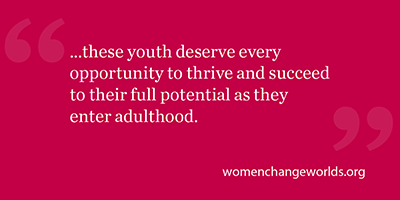 The Home for Little Wanderers believes that these youth deserve every opportunity to thrive and succeed to their full potential as they enter adulthood. By collaborating with the Department of Children and Families, the Department of Mental Health, and the Massachusetts Task Force for Youth Aging Out, the Home has developed specific and effective supports to serve this population. Through customized, age-specific services the Home has implemented innovative programs, including the Young Adult Resource Network (YARN) for “wraparound” services, the Roxbury Village to provide transitional housing for homeless youth, Academic Support for College and Life (ASCL), Peer Mentors, Life Skills programs, and Life Coaches. All of these programs share the same goal and ultimate vision for success: to connect young adults with community resources and help them become contributing members in the community while acquiring the skills they need to achieve self-sufficiency.
The Home for Little Wanderers believes that these youth deserve every opportunity to thrive and succeed to their full potential as they enter adulthood. By collaborating with the Department of Children and Families, the Department of Mental Health, and the Massachusetts Task Force for Youth Aging Out, the Home has developed specific and effective supports to serve this population. Through customized, age-specific services the Home has implemented innovative programs, including the Young Adult Resource Network (YARN) for “wraparound” services, the Roxbury Village to provide transitional housing for homeless youth, Academic Support for College and Life (ASCL), Peer Mentors, Life Skills programs, and Life Coaches. All of these programs share the same goal and ultimate vision for success: to connect young adults with community resources and help them become contributing members in the community while acquiring the skills they need to achieve self-sufficiency.
Alongside this, the Home works tirelessly to collaborate with various agencies through both communication and action to advocate for change and ensure their voices are heard. Through shared partnerships, the Home works to strengthen connections and services for youth who are at risk for transitioning out of care, which not only prepare them for entering adulthood, but also foster connections and relationships with adults and peers that will follow them on their path toward personal and professional success.
For more information on the Home and their work with Transitional Age Youth visit: thehome.org
Joan Wallace-Benjamin, Ph.D. is president and CEO of The Home for Little Wanderers as well as a graduate of Wellesley College, Class of 1975.


 I wrote these thoughts as a white, upper-middle-class, able-bodied, heterosexual, secular humanist woman, with the primary goal of connecting more deeply with other white people and being open to all other intersections. I was deeply impacted by and must honor this writer of color--Isobel Debrujah’s “
I wrote these thoughts as a white, upper-middle-class, able-bodied, heterosexual, secular humanist woman, with the primary goal of connecting more deeply with other white people and being open to all other intersections. I was deeply impacted by and must honor this writer of color--Isobel Debrujah’s “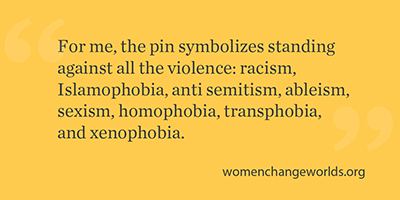 CALLING IN WITH LOVING ACCOUNTABILITY:
CALLING IN WITH LOVING ACCOUNTABILITY: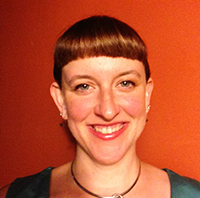 I love the people in my life who push me to be better. I owe much gratitude for this piece to Mirah Anti, Jorge Zeballos, Pat Savage-Williams, Andrea Johnson, Donald Burroughs, Matthew Biecker, Ashley Tuzicka Ray, and Jamie Utt.
I love the people in my life who push me to be better. I owe much gratitude for this piece to Mirah Anti, Jorge Zeballos, Pat Savage-Williams, Andrea Johnson, Donald Burroughs, Matthew Biecker, Ashley Tuzicka Ray, and Jamie Utt.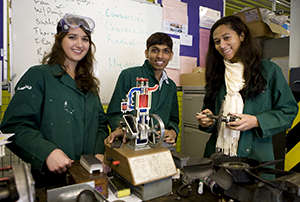
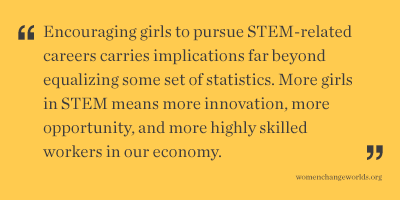 National nonprofit organizations like
National nonprofit organizations like 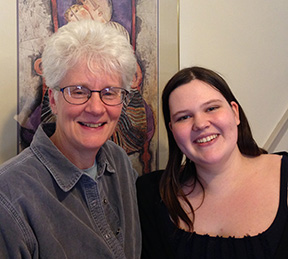
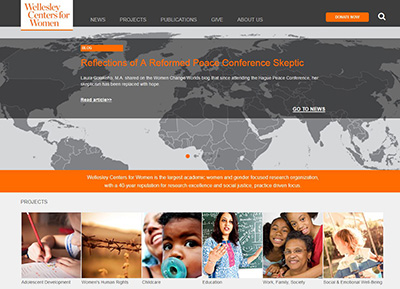
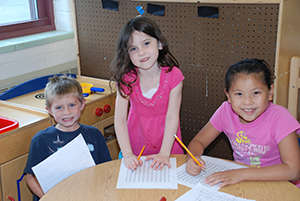
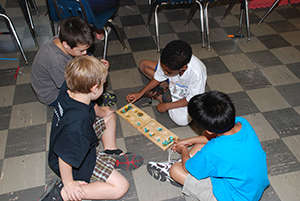

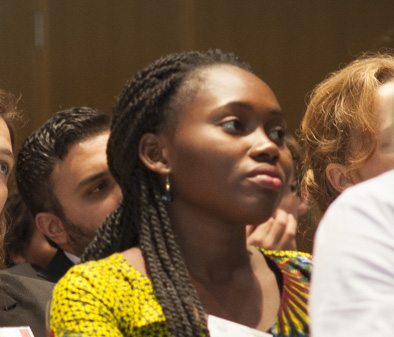
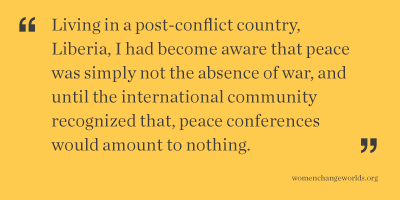 The three-day conference was full of conversations and speeches by professors, politicians, lawyers, and students from around the world and it helped further shape my ideas about peace and how, instead of been skeptical, I can contribute to achieving world peace. It wasn’t merely these conversations or speeches that shaped my thinking, but mostly by being a part this global community I had the opportunity to use my voice--and the voices of other participants--to rally behind a common good. The conference exposed me to a lot of factors undermining peace around the world as well as possible solutions to tackle them. It brought me face to face with other young people from around the world who had similar experiences as mine but who had examples of proven and possible solutions for peacebuilding. One of those participants was a Canadian law student, originally from Rwanda, who became an immigrant at a tender age because of the genocide in her country. She stressed her idea that peace is possible but only if we focus our efforts on changing international humanitarian laws.
The three-day conference was full of conversations and speeches by professors, politicians, lawyers, and students from around the world and it helped further shape my ideas about peace and how, instead of been skeptical, I can contribute to achieving world peace. It wasn’t merely these conversations or speeches that shaped my thinking, but mostly by being a part this global community I had the opportunity to use my voice--and the voices of other participants--to rally behind a common good. The conference exposed me to a lot of factors undermining peace around the world as well as possible solutions to tackle them. It brought me face to face with other young people from around the world who had similar experiences as mine but who had examples of proven and possible solutions for peacebuilding. One of those participants was a Canadian law student, originally from Rwanda, who became an immigrant at a tender age because of the genocide in her country. She stressed her idea that peace is possible but only if we focus our efforts on changing international humanitarian laws.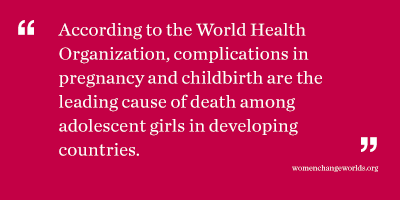 services to women and girls who need them. What our clinic staff has seen firsthand is that blocking access to abortion and comprehensive reproductive health care doesn’t stop them from being needed, or even stop them from happening — it just keeps them from being safe. Due in large part to extensive abortion bans throughout the region, 95% of abortions in Latin America are performed in unsafe conditions that threaten the health and lives of women.
services to women and girls who need them. What our clinic staff has seen firsthand is that blocking access to abortion and comprehensive reproductive health care doesn’t stop them from being needed, or even stop them from happening — it just keeps them from being safe. Due in large part to extensive abortion bans throughout the region, 95% of abortions in Latin America are performed in unsafe conditions that threaten the health and lives of women.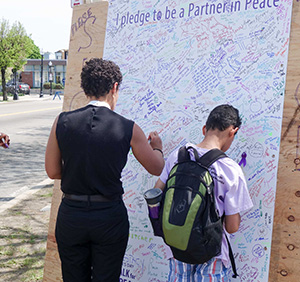
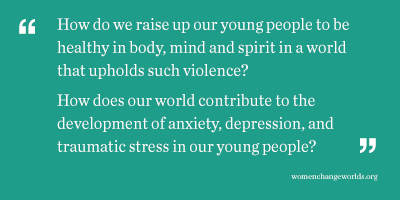 Although these are all big questions, I have at least learned a few things over the years through my
Although these are all big questions, I have at least learned a few things over the years through my 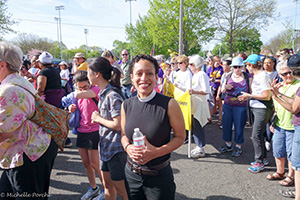 Lisa Fortuna
Lisa Fortuna
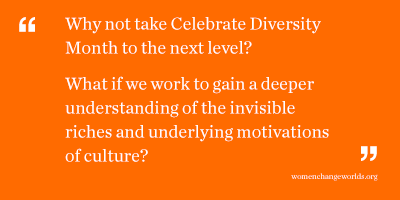 My academic and teaching interests lie at the intersection of culture, computation, community, and cognition--I like to think about how technology can support learning in community and public settings. In my
My academic and teaching interests lie at the intersection of culture, computation, community, and cognition--I like to think about how technology can support learning in community and public settings. In my 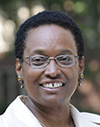 Robbin Chapman
Robbin Chapman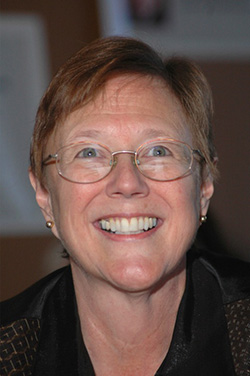
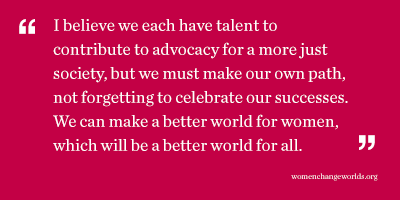 Dr. Hardisty had served on the Board of Directors of the Highlander Center for Research and Education, the Ms. Foundation, the Center for Community Change, and the Center for Women Policy Studies, among others. Her book, Mobilizing Resentment: Conservative Resurgence from the John Birch Society to the Promise Keepers, was first published by Beacon Press in 1999. Some of her WCW-related
Dr. Hardisty had served on the Board of Directors of the Highlander Center for Research and Education, the Ms. Foundation, the Center for Community Change, and the Center for Women Policy Studies, among others. Her book, Mobilizing Resentment: Conservative Resurgence from the John Birch Society to the Promise Keepers, was first published by Beacon Press in 1999. Some of her WCW-related 
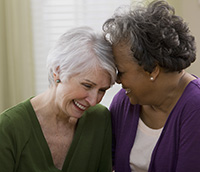
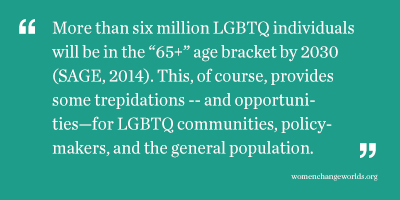 In the last couple of years, more research has surfaced regarding LGBTQ elderly people, which provides a sobering look at their attitudes and thoughts about aging. The first and obvious concern is aging in a society and community that places a high value on youth, leaving the elderly feeling useless and insignificant (Fox, 2007). This is both within the LGBTQ communities and in the general population. Ageism is pervasive in the U.S.
In the last couple of years, more research has surfaced regarding LGBTQ elderly people, which provides a sobering look at their attitudes and thoughts about aging. The first and obvious concern is aging in a society and community that places a high value on youth, leaving the elderly feeling useless and insignificant (Fox, 2007). This is both within the LGBTQ communities and in the general population. Ageism is pervasive in the U.S.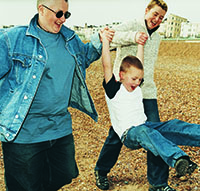
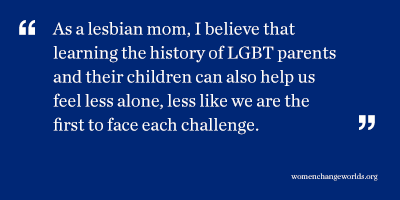 Vita Sackville-West
Vita Sackville-West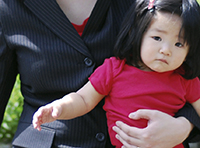
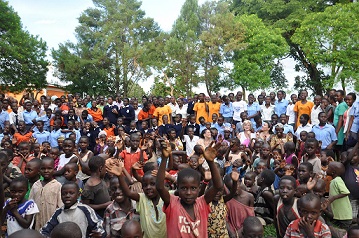
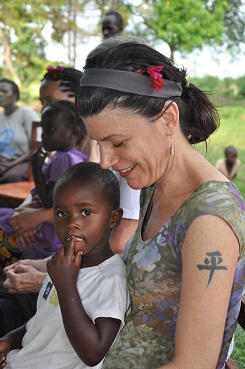 Jen Dirga
Jen Dirga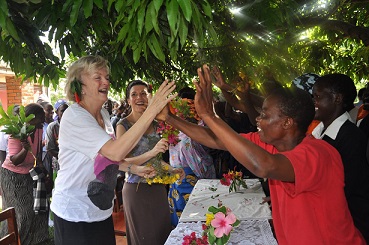 Sallie Dunning
Sallie Dunning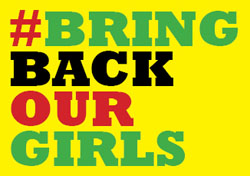
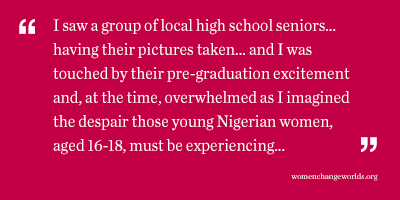

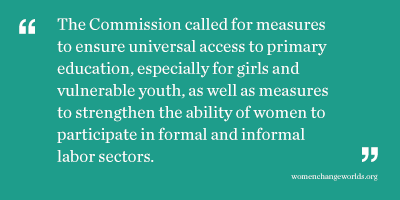 The Commission also stated that the post-2015 development agenda must include gender-specific targets across other development goals, strategies, and objectives -- especially those related to education, health, economic justice, and the environment. It also called on governments to address the discriminatory social norms and practices that foster gender inequality, including early and forced marriage and other forms of violence against women and girls, and to strengthen accountability mechanisms for women's human rights.
The Commission also stated that the post-2015 development agenda must include gender-specific targets across other development goals, strategies, and objectives -- especially those related to education, health, economic justice, and the environment. It also called on governments to address the discriminatory social norms and practices that foster gender inequality, including early and forced marriage and other forms of violence against women and girls, and to strengthen accountability mechanisms for women's human rights.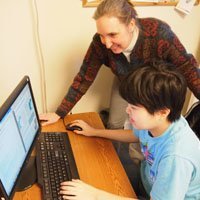
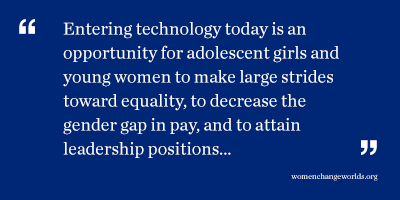 In my hometown, I see evidence that women are emerging as confident, enthusiastic leaders of technology. Recently, I was at a public meeting for a community group planning the inaugural
In my hometown, I see evidence that women are emerging as confident, enthusiastic leaders of technology. Recently, I was at a public meeting for a community group planning the inaugural 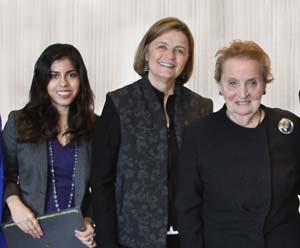
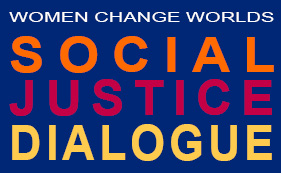 At the
At the 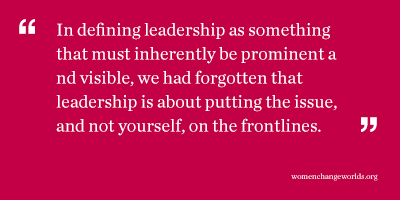 Yet just because women weren’t holding high-profile leadership positions on campus didn’t mean that they weren’t contributing to campus life. The committee also found that women were more likely to “hold behind-the-scenes positions or seek to make a difference outside of elected office in campus groups.” Women at Princeton, for example, were often engaged in cause-based issues, like spearheading campaigns to institute recycling across campus.
Yet just because women weren’t holding high-profile leadership positions on campus didn’t mean that they weren’t contributing to campus life. The committee also found that women were more likely to “hold behind-the-scenes positions or seek to make a difference outside of elected office in campus groups.” Women at Princeton, for example, were often engaged in cause-based issues, like spearheading campaigns to institute recycling across campus.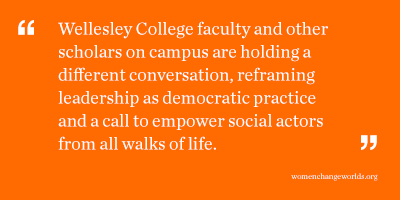 Second, the PPLA explores ways to do teaching and research that is driven by our values. We focus on the kinds of leadership and collective capacity we need to meet the common challenges our society face in a just way. We insist upon rigor and methodological soundness in our work, but we cannot separate moral and ethical considerations from our research and writing. Many scholars believe that our values suffuse our classrooms, laboratories, articles, and books whether we recognize and foreground them or not. The Project on Public Leadership seeks ways to affirm and support explicitly values-driven work.
Second, the PPLA explores ways to do teaching and research that is driven by our values. We focus on the kinds of leadership and collective capacity we need to meet the common challenges our society face in a just way. We insist upon rigor and methodological soundness in our work, but we cannot separate moral and ethical considerations from our research and writing. Many scholars believe that our values suffuse our classrooms, laboratories, articles, and books whether we recognize and foreground them or not. The Project on Public Leadership seeks ways to affirm and support explicitly values-driven work.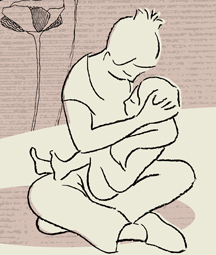
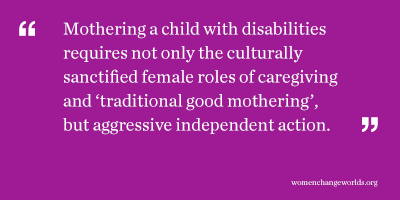 But for a single mother, even this culturally permissible deviance is insufficient. My life with Amy is different from the lives of most of my colleagues and friends. I could not provide emotional, physical and financial support for Amy without re-envisioning motherhood. Amy and I have lived with a shifting assortment of male and female students, single women as well as married women with children. Work for me is not possible without round the clock care for Amy. This is true for all mothers and children, but it is a need that is normally outgrown. Not so in our case. Amy fuels my passion for feminist solutions; not simply for childcare, but for policy issues across the board. I know first hand too many of the dilemmas confronting women, from the mostly invisible, predominately female workers who care for others in exchange for poverty level wages to successful business women struggling to be perfect mothers, perfect wives and powerfully perfect CEOs.
But for a single mother, even this culturally permissible deviance is insufficient. My life with Amy is different from the lives of most of my colleagues and friends. I could not provide emotional, physical and financial support for Amy without re-envisioning motherhood. Amy and I have lived with a shifting assortment of male and female students, single women as well as married women with children. Work for me is not possible without round the clock care for Amy. This is true for all mothers and children, but it is a need that is normally outgrown. Not so in our case. Amy fuels my passion for feminist solutions; not simply for childcare, but for policy issues across the board. I know first hand too many of the dilemmas confronting women, from the mostly invisible, predominately female workers who care for others in exchange for poverty level wages to successful business women struggling to be perfect mothers, perfect wives and powerfully perfect CEOs.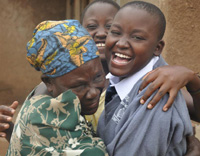 Social Justice Dialogue: Eradicating Poverty
Social Justice Dialogue: Eradicating Poverty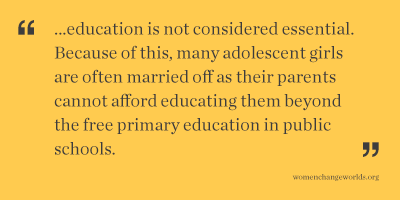 I was fortunate, however, that my parents were not desperate for the bride price when I was a growing up. I could have been sold for a cow or a goat. Instead, at age 14, when I was feeling hopeless and working as a barmaid, a wonderful family in Kentucky (who knew one of my cousins from when they had done missionary work years earlier) enabled my return to school by paying my school fees for five years. I went on to earn my college degree before working with organizations that were striving to improve the lives of poor families in Africa.
I was fortunate, however, that my parents were not desperate for the bride price when I was a growing up. I could have been sold for a cow or a goat. Instead, at age 14, when I was feeling hopeless and working as a barmaid, a wonderful family in Kentucky (who knew one of my cousins from when they had done missionary work years earlier) enabled my return to school by paying my school fees for five years. I went on to earn my college degree before working with organizations that were striving to improve the lives of poor families in Africa.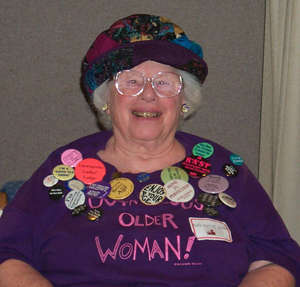 September is
September is 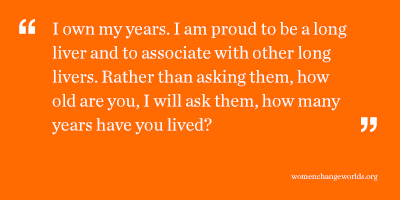 “I intend to be outrageous for the rest of my life. Being outrageous means that I will not accept insults, being ignored, or being maltreated. I deserve to be valued, listened to, and respected and treated well by others. I also deserve to listen to my own needs and wants and to try to fulfill them.
“I intend to be outrageous for the rest of my life. Being outrageous means that I will not accept insults, being ignored, or being maltreated. I deserve to be valued, listened to, and respected and treated well by others. I also deserve to listen to my own needs and wants and to try to fulfill them.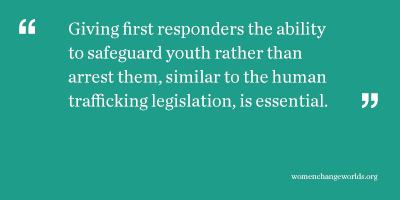 A few years ago my daughter, while in college in Connecticut, invited me to a community gathering she helped organize on
A few years ago my daughter, while in college in Connecticut, invited me to a community gathering she helped organize on 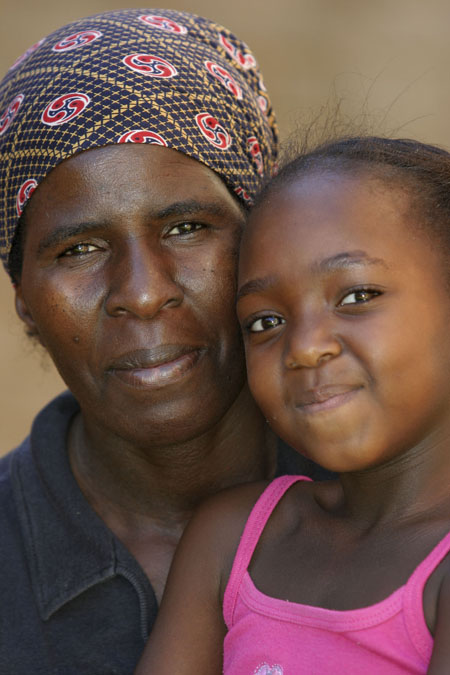
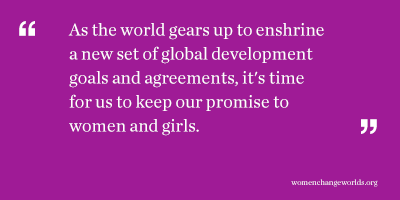 We have waited too long! In 1994, governments agreed to an ambitious
We have waited too long! In 1994, governments agreed to an ambitious 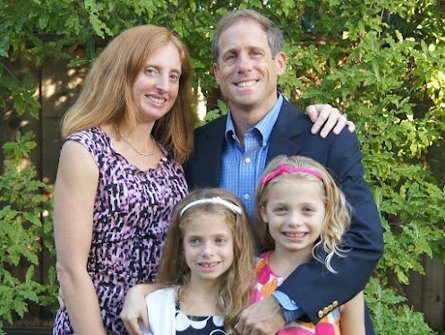
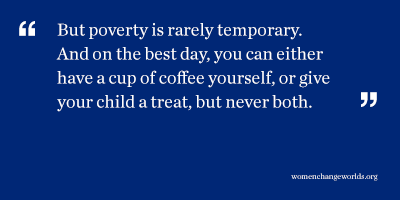 What are some cheap nutritious foods? In no particular order, the Biro family’s diet last week consisted of rice, beans, potatoes, inexpensive meat (specifically split chicken breasts on sale, and stew meat on sale), bananas, eggs, carrots (but you have to peel them yourself--having the factory do the work for you and turn them into baby carrots costs too much), pasta, homemade pancakes, nuts, oatmeal and super cheap granola bars we bought in bulk (more on this later). We bought a small crate of “Clementine” oranges on sale for $6, or $0.20 apiece. We made homemade pizza one night, with dough from scratch costing roughly $0.40, the sauce about $1 and mozzarella at $3, totaling not quite $5 for 2 pizzas, with leftovers for lunch. We did buy fresh broccoli, which is expensive at $0.30 per serving, so we didn’t have much. Frozen vegetables are usually cheaper, but not always. Lentils are cheap and high-quality calories but we didn’t get those in.
What are some cheap nutritious foods? In no particular order, the Biro family’s diet last week consisted of rice, beans, potatoes, inexpensive meat (specifically split chicken breasts on sale, and stew meat on sale), bananas, eggs, carrots (but you have to peel them yourself--having the factory do the work for you and turn them into baby carrots costs too much), pasta, homemade pancakes, nuts, oatmeal and super cheap granola bars we bought in bulk (more on this later). We bought a small crate of “Clementine” oranges on sale for $6, or $0.20 apiece. We made homemade pizza one night, with dough from scratch costing roughly $0.40, the sauce about $1 and mozzarella at $3, totaling not quite $5 for 2 pizzas, with leftovers for lunch. We did buy fresh broccoli, which is expensive at $0.30 per serving, so we didn’t have much. Frozen vegetables are usually cheaper, but not always. Lentils are cheap and high-quality calories but we didn’t get those in. 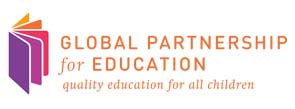

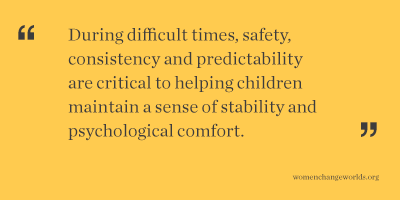 prone to anxious feelings or those with their own trauma history can be triggered by another traumatic event, even if it did not directly happen to them. In addition to the positive, supportive classroom climate and the social and emotional learning tools that Open Circle provides, some students may need additional time with a school psychologist or guidance counselor to help them manage their fears.
prone to anxious feelings or those with their own trauma history can be triggered by another traumatic event, even if it did not directly happen to them. In addition to the positive, supportive classroom climate and the social and emotional learning tools that Open Circle provides, some students may need additional time with a school psychologist or guidance counselor to help them manage their fears.